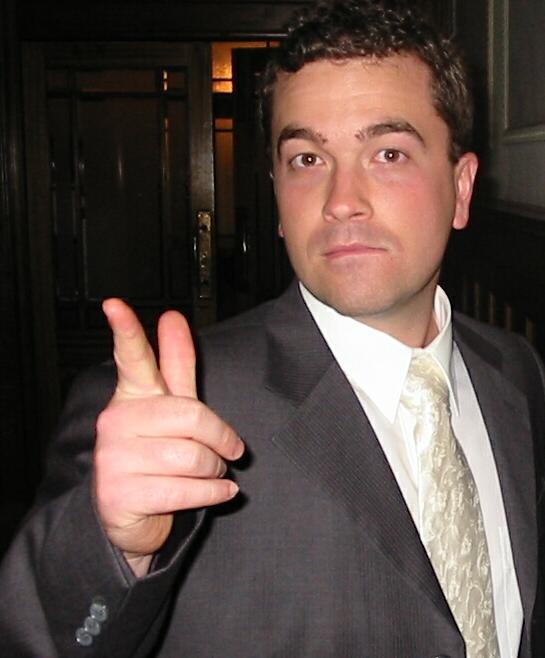And I fear that this one has flown right in under our radar.

The other day I heard of Second Life for the first time; an online world where you can create a persona and interact with other personae, even to the extent where your character (or avatar as it's called) could open up a shop and sell digital clothes to other online characters (avatars) for them to wear as they walk around living their “second life.” Here’s the scary part: from what I understand you can buy and sell such items using real money transferred from one account to another. That’s real money exchanged for items which have no physical existence. According to the The Age, Second Life has already spawned its first real-money millionaire. That’s wacky.
Obviously such a digital application could present real pastoral issues, but when was the last time you heard a sermon which helped the congregation negotiate life online?
Time to think about it…

9 comments:
Hi Marty,
Did you see Saturday's article in the SMH on Second Life? It turns out that its' now spawned its' own terrorist organisation. It seems that our Second Life is just as sinful as our first.
Roger
SO: what would you say?
could you perhaps produce a list - say, seven things to say to people about online life and the Christian life?
This could make your name!
Dodger: Yeah, the Age article is the same one. I couldn't link to the SMH, they wanted me to pay money. Hope your doing well.
MPJ: Note that this is the first of a planned series. Watch this space...
hey roger...
i was thinking the same thing when i read that article... it's hardly surprising!!!
marty - looking forward to this new series! keep them coming
Interesting that the idea of 'real' money for non-physical 'things' causes such a shock. Why? Most of the 'money' in modern economies has no material basis for existence either. The thorough-going materialist-orientation of so much of our thinking creates an overwhelming prejudice that what is not material is not real. The contingency of digital 'objects' is perhaps more obvious, but I would argue their contingency does not diminish their ontology.
If I had a first point about digital 'life' is that it is in no way less 'real' than embodied-life.
Hi Marty,
Doing okay.
Jeltzz - I agree with you that increasingly our money is "virtual" - it only has power as a medium of exchange because our government/society says it does. But then, how different is that really from the situation in the past, when gold and silver was used as a basis of value because of their scarcity and (in the case of gold) the fact that it doesn't corrode.
However, I'd disagree with you that digital life is no less 'real' than embodied life. You can turn digital life off, you can't turn embodied life off.
Regards
Roger - not sure that the organisation in question is a terrorist one. I'd call them freedom fighters...
Virtual violence: there's a whole new area to explore.
Isn't that what a lot of terrorists call themselves?
Hello Marty,
First post on a blog. The whole online existence is a very interesting question. You may know of World of Warcraft, perhaps the biggest online game. People trade real money for goods and services on that as well.
I read a very interesting sci-fi series a few years back called "Otherland", set this century, where everything is done online. The villains of the series where trying to make themselves immortal by reproducing their personalities in an online world which they controlled. It raised some good questions.
Post a Comment